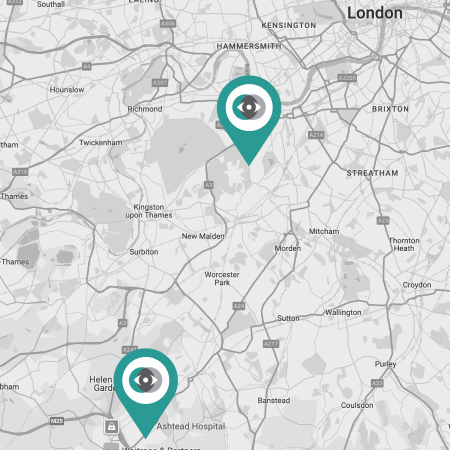Restore clear vision and live without limits with private cataract surgery in London & Surrey
We use advanced lens technology to eliminate cloudy vision, giving you back the sharp, vibrant sight you need for a life free from the hassle of glasses
Restore clear vision and live without limits with private cataract surgery in London & Surrey
We use advanced lens technology to eliminate cloudy vision, giving you back the sharp, vibrant sight you need for a life free from the hassle of glasses
“It has changed my life”
Watch Helen’s journey to clear vision with life-changing cataract surgery
Renew your vision with premium cataract surgery
Step into a life of vibrant clarity and see the remarkable difference cataract surgery can make
Rediscover comfort
After cataract surgery, you’ll experience a welcome relief from the physical strain of poor vision. Say goodbye to dry eyes, headaches, and the constant battle with multiple pairs of glasses. Everyday tasks, from reading to driving, will become smoother and more enjoyable, helping you embrace life comfortably.
Embrace peace of mind
After treatment, a profound sense of relief will settle in. The worry and frustration of struggling with fading vision will be replaced by newfound confidence and calm. No longer burdened by anxiety over vision limitations, you’ll feel more relaxed, ready to enjoy each day with ease.
Live each day fully
From reading menus to driving confidently at night, you’ll move through each moment with clarity and assurance. With the freedom from glasses, you’ll find joy in life’s simple pleasures, empowered to seize every opportunity that comes your way.
A renewed you
Your friends and family will notice a remarkable transformation. With clearer vision and a renewed outlook, they’ll see you as vibrant, confident, and more engaged. Your newfound independence and positivity will inspire those around you, as you fully embrace a life free from visual limitations.
Renew your vision with premium cataract surgery
Step into a life of vibrant clarity and see the remarkable difference cataract surgery can make

Rediscover comfort
After cataract surgery, you’ll experience a welcome relief from the physical strain of poor vision. Say goodbye to dry eyes, headaches, and the constant battle with multiple pairs of glasses. Everyday tasks, from reading to driving, will become smoother and more enjoyable, helping you embrace life comfortably.

Embrace peace of mind
After treatment, a profound sense of relief will settle in. The worry and frustration of struggling with fading vision will be replaced by newfound confidence and calm. No longer burdened by anxiety over vision limitations, you’ll feel more relaxed, ready to enjoy each day with ease.

Live each day fully
From reading menus to driving confidently at night, you’ll move through each moment with clarity and assurance. With the freedom from glasses, you’ll find joy in life’s simple pleasures, empowered to seize every opportunity that comes your way.

A renewed you
Your friends and family will notice a remarkable transformation. With clearer vision and a renewed outlook, they’ll see you as vibrant, confident, and more engaged. Your newfound independence and positivity will inspire those around you, as you fully embrace a life free from visual limitations.
Fix your cataracts and restore clear vision in 3 simple steps
Cataract treatment options can seem complex. We’ve streamlined the process to make it as easy as possible

Step 1: Get in touch
Your journey to brighter, clearer vision begins with reaching out for an initial consultation. Whether you call or book online, this first step will help us understand your vision goals and determine how premium cataract surgery can best serve your needs.

Step 2: We’ll meet
During your consultation, our team will conduct advanced eye exams to assess the type and extent of your cataracts. We’ll discuss premium lens options designed to restore your vision beyond cataract removal, with options for multifocal or extended depth-of-focus lenses that help you see near and far with clarity.

Step 3: Enjoy life
After premium cataract surgery, many patients are amazed by the vibrant colors, crisp details, and enhanced depth they experience. With the right premium lenses, you can enjoy freedom from glasses and confidently engage in daily activities, from reading to enjoying nature, with renewed clarity and joy.
Start your journey to rediscover life with clear vision
Book an assessment today and see how cataract surgery can bring back the freedom of clear sight
Start your journey to rediscover life with clear vision
Book an assessment today and see how cataract surgery can bring back the freedom of clear sight

Your questions answered
Explore the benefits of premium cataract surgery and find answers to help you make an informed choice for clearer vision
A cataract does not have to be removed just because it is there.
Surgery is undertaken when the cataract interferes with your normal activities such as driving, reading, hobbies or watching television.
Cataract surgery is safer and better for the health of the eye if performed when the cataract is at an early stage. Cataracts do not need to be ‘ripe’ before being removed. Each person is different, your individual circumstances will be discussed and surgery performed when you need it.
Cataracts are removed by an operation called ‘phakoemulsification’.
You will have drops in the eye to dilate the pupil and to anaesthetise the eye. Local anaesthetic drops are used to numb the eye and prevent any pain.
A microscope and miniature instruments are used to painlessly dissolve the cataract and place a new plastic lens inside the eye. The strength of the lens is tailored to fit your eye and takes into account your glasses prescription. The 2.2mm long incision is self-sealing and does not usually require stitches.
Cataract surgery is generally a very safe procedure. However, as with any surgical procedure results cannot be guaranteed and occasionally complications do occur.
- After surgery you may expect to experience some pain, light sensitivity and glare.
- Mild irritation for a few days is common. Severe pain may indicate raised pressure or an infection, in which case please contact us immediately.
- Light sensitivity and glare can occur. As the cloudy cataract is replaced with a crystal clear lens, it may take some time to adjust to the extra light entering the eye. One advantage of this is that colours seem brighter.
- Variations in outcome.
Need for glasses after surgery.
Lenses
The strength of the implant lens is calculated to minimise the need for glasses following the operation. Most patients with a monofocal implant will be able to see clearly without distance glasses and use simple reading glasses. Some patients elect to have reading vision and use distance glasses as an alternative.
Sometimes you will require glasses for distance, reading or both despite perfect surgery. This means that the vision will be clear when wearing the glasses. In extreme cases, the implant may have to be exchanged.
Stitches
Modern phakoemulsification surgery does not require stitches, as a keyhole incision is used. Very rarely a stitch is used for technical reasons. This may cause some astigmatism and blurred vision until it is taken out two weeks after surgery.
Vision threatening complications
Cataract surgery is generally very safe and successful. The chance of having a serious complication that severely damages vision is in the region of 1 in 500.
Surgery is the only way to cure cataracts. There are no known dietary or lifestyle changes to prevent it. Although it is a common misconception, lasers are not usually used to remove cataracts.
Traditional cataract surgery
- In the standard procedure, we remove the cloudy lens and replace it with a monofocal lens. This lens provides clear vision at a single distance, typically for seeing far away. However, you will still need glasses for other tasks, such as reading or working on a computer.
Premium cataract surgery
- This advanced option involves removing the cloudy lens and replacing it with a multifocal lens. This specialised lens allows for clear vision at multiple distances—near, far, and in-between—reducing or even eliminating the need for glasses in most daily activities.
No needle, no patch surgery
- Professor Ursell has pioneered ‘no needle, no patch’ surgery.
- Due to the way surgery is performed with micro incisions there is no need for needles to provide anaesthetic into the eye. The area is numbed with gentle eye drops that do not sting and the whole operation is painless so you stay awake throughout. You will not see any of the instruments and patients report seeing pretty swirling patterns similar to the Northern Lights.
- As the disruption to the eye is so minimal and the incisions are so strong, there is no need to cover the eye with a patch after the operation which many patients used to find very inconvenient. Often patients claim that when looking in the mirror the next day they cannot tell which eye has been operated on.
- Naturally, we understand some patients have perfectly reasonable fears about having surgery whilst fully conscious but the benefits hugely outweigh the downsides. Professor Ursell has performed thousands of operations this way and is a specialist at reassuring you both before and during the operation.
- We have found over the years that our figures show 99% of patients are comfortable with this and will always elect to have the second operation this way after the first. If you are still not comfortable with ‘no needle’ anaesthesia then we have the facility to provide general anaesthetic if needed.
- Our aim is to make the whole experience as comfortable for you as possible and this attitude has enabled Professor Ursell to create one of the largest practices for cataract surgery in the area, mainly through word of mouth.
Once the surgery is complete, additional drops will be placed in your eye to prevent infection, decrease inflammation, temporarily inactivate your eye’s focusing system and keep your pupil dilated. Someone will need to drive you home.
When you have returned home from surgery, it is important to rest for the remainder of the day. Do not disturb the eye. Rest as much as possible, having an evening meal and a good night’s sleep. You may shower or bathe. You may also wash your hair after surgery.
Place the drops in that evening. At this point, you may resume normal activities, including bending. Do not discontinue any of the eye drops until directed to do so. Usually you will use Tobradex and Yellox drops twice a day for three weeks.
When instilling the drops, wait about three to five minutes between each type of drop. If you are not sure that the medication actually went into your eye, instil additional drops. It is better to instil too much rather than too little. It does not matter which drop goes in first.
A follow-up visit will be scheduled for approximately one or two weeks after the cataract surgery. If you experience any unusual pain, discharge or an abrupt change in your vision, please call immediately using the mobile number provided (this will be given to you following the operation).
It is normal after surgery for the white part of your eye to appear red. This will usually clear in a few days. Your eye may feel scratchy, but you should have no pain.
Temporary floating spots and brief flashes are common following surgery, but should disappear. Your distance vision will usually be very good within a day or two after surgery. However, your intermediate and near vision may be somewhat blurred for the first one or two weeks. You may buy over the counter reading glasses if needed from the chemist to help you read until you have a full prescription from your optician. You should see your optician four weeks after surgery.
You can drive when you achieve the UK driving specification which is being able to read a number plate at 60 feet. This usually occurs within a day or two of surgery and can even be the next day.
After routine cataract surgery the majority of patients can see well enough to drive within 24 hours.
Patients frequently say to us that the vision is better than they have had for many years when they wake up the next day.
They can see much brighter, fresher colours and detail in the distance that astounds them. You may have a slightly scratchy and red eye for a day or so.
There is always the possibility of variation after any surgical procedure so if this does not occur for you immediately, please wait a day or so or call us if you are concerned.
Is there a cure for Cataract?
- There is no cure for cataract apart from surgery. Cataract is a very common form of ageing of the natural lens that we are all born with. It is possible to find the earliest signs of cataract in a lot of normal people over the age of 60. There have recently been reports in the press that drops may eliminate cataract. Unfortunately, these claims have not been scientifically verified and the drops are not recommended by Mr Ursell.
How can I prepare for cataract surgery?
- On the day of surgery you should take all medication as normal. If you are having a local anaesthetic you do not need to fast prior to surgery and you can eat and drink as you see fit.
- If you are having a general anaesthetic you should not eat anything for six hours before the procedure and you may drink water up to two hours before.
- When arriving for your surgery, you will be greeted and taken to the waiting area by the nurses and Professor Ursell will then come and see you to ensure all the paperwork is correct and to answer any last-minute questions you may have.
- You will be taken through to the theatre where Professor Ursell will be waiting for you to carry out the operation. It is important for you to be as relaxed as possible in theatre and we will ensure that you are comfortable and there is no pain.
- We find that one of the most effective ways of achieving this is for you to listen to music. We have access to Spotify so you can listen to your favourite artists throughout the procedure, which takes around 30 minutes.
What anaesthetic will I have for the eye surgery?
- You will have drops in the eye to dilate the pupil and to anaesthetise the eye. Local anaesthetic drops are used to numb the eye and any pain is prevented by an infusion of anaesthetic that lasts throughout the operation.
Will a laser be used for Cataract surgery?
- There has been a recent development for using a femtosecond laser for cataract surgery. This has been heavily marketed as ‘no blade’ surgery or ‘laser cataract’ surgery. The concept is very early in its development and to date unproven. So far there has not been any research that Mr Ursell shows that this offers any advantage and a recent Cochrane review of the literature agrees that there are very few unbiased scientific publications on this. As yet there has been no reliable findings that it offers better results and some reports that it offers a worse outcome.
- Surgery on your eyes is something that should not be undertaken lightly. Mr Ursell has been involved in research into how to improve cataract surgery his entire career and does not recommend this technique.
Can I have eye surgery twice?
- Routine cataract surgery has a very high success rate and 97% – 98% are delighted with the results so no further surgery is required. There is a 1/500 chance of serious complications that may require further surgery depending on the situation. Mr Ursell often gets referrals from other surgeons after surgery to provide repairs if there is a problem.
Will I need glasses after eye surgery?
- This depends on the type of implant you chose. If you have a monofocal distance implant virtually all patients will be free of distance glasses but most will need reading glasses.
- If you have multifocal implants in both eyes, about 80% are spectacle independent for both distance and reading. The different type of implant is a personal decision and you can discuss which would be best for you when you have your consultation with Mr Ursell.
Will I have 20:20 vision after eye surgery?
- Our figures show that 97% – 98% of patients are delighted with the results of surgery and see very well. These patients can get as much vision as their eyes are capable of delivering for them. If you have other sight problems such as macular degeneration, glaucoma, diabetes or a lazy eye, this will not be cured by cataract surgery and your vision will still be limited by these other factors despite perfect surgery. All of these factors will be discussed with you when you have your consultation with Mr Ursell.
Does the Cataract Doctor treat international patients?
- Mr Ursell has an international reputation due to his frequent lectures at prestigious conferences around the world and his overseas charity work which means that we treat many patients from all parts of the world. We can easily organise appointments and scheduling for surgery to incorporate all of your travel plans. The clinic is located 30 minutes from both Heathrow and Gatwick and within easy reach of central London.
Do you offer help with travel?
- We have been treating patients from overseas for many years. We have found it best if you make your own arrangements to travel to the UK and we can suggest a variety of places to stay whilst you are with us for treatment.
Do you offer a translation service?
- Unfortunately, we do not offer this service and recommend that you bring someone with you who can translate. We often have the translator or a relative to come into the operating theatre for reassurance during the procedure and patients often find this very reassuring.
What payments do you accept?
- We are happy to take payment over the phone with a credit or debit card. We can also accept direct BACS transfer, cheque or cash.
- Unfortunately, we do not currently accept American Express.
Does living with cataracts feel overwhelming?
Take control of your vision by booking an eye assessment, the first step toward a clearer, more confident life

Difficulty driving at night due to glare and blurry vision?
Struggling with night driving is a common frustration for many with cataracts. The glare and blurry vision can make driving feel unsafe, limiting your freedom and independence. Book a free appointment to assess how cataract surgery could restore your night vision, allowing you to drive safely and confidently.

Frustration with relying on multiple pairs of glasses for daily activities
Switching between multiple pairs of glasses for reading, watching TV, and seeing clearly at different distances is inconvenient and exhausting. You deserve a simpler solution. Book a free appointment to see if you’re a candidate for premium cataract surgery with multifocal lenses, which can eliminate the need for multiple glasses.

Do you have a fear of surgery?
For many, the idea of eye surgery feels intimidating. But working with an experienced, trusted surgeon can make the process smoother, safer, and give you peace of mind. Contact our clinic to meet our highly specialised surgeon, Paul Ursell who will explain the process, answer your questions, and discuss how premium cataract surgery can improve your quality of life.
Real success stories of people who transformed their vision
See how people have transformed their lives by breaking free from cataracts and glasses
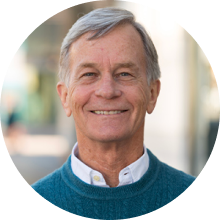
★ ★ ★ ★ ★“Excellent result. Complete confidence in Paul Ursell. Quiet, quick, and efficient. Peaceful and comfortable hospital.”

★ ★ ★ ★ ★
“The cataract surgery on both of my eyes went very smoothly without any problems. There was no pain afterwards and I didn’t have to wear any eyepatch. I would highly recommend Professor Ursell for cataract surgery.”
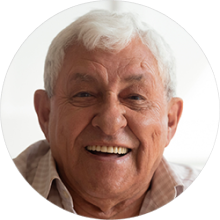
★ ★ ★ ★ ★“Highly professional, extremely efficient, and an excellent communicator, Paul exudes experience, knowledge, and ability. The whole process — initial consultation, operation, and post-op check-up — was wonderfully stress-free. I now have 20/20 vision, am glasses-free, and I am delighted by the results.”
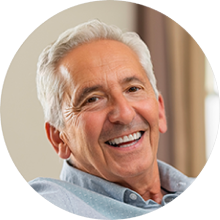
★ ★ ★ ★ ★
“The cataract surgery has completely changed my life. Mr. Ursell put me at ease and explained all options. The procedure was quick and painless and completely successful, and I now have 20/20 vision in my good eye. One of the reasons I had the surgery was because of Mr. Ursell’s standing and experience. Cannot praise highly enough.”
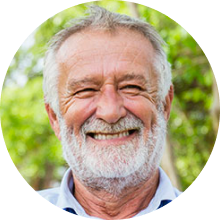
★ ★ ★ ★ ★
“I was very short-sighted and my cataracts badly affected both reading and distance acuity. After the operation I now have very good distance vision (glasses-free) but still need glasses for reading. (This was the expected outcome as I did not want multi-focus implants). The operation was quick and painless, and I had no post-operative discomfort at all (which surprised me). The results are remarkable.
I can certainly recommend Professor Ursell. He is a personable consultant and a skilled surgeon.”
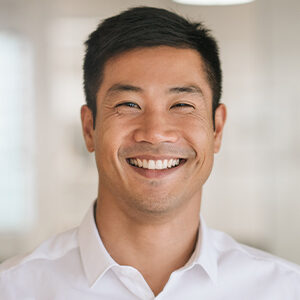
★ ★ ★ ★ ★
“Dr. Paul Ursell squashed many of my concerns for not having cataract surgery. He offered comfort with examples of his long/distinguished career and new technology that he applies to the surgery.
Both before and after the surgery, Dr. Ursell and staff gave me the information and attention I needed. It was a great success, and I highly recommend Dr. Ursell.”
We have replaced the images of real patients who provided these testimonials to protect their privacy.
Discover the right cataract surgery for your eyes
Find out in minutes which lens option suits your vision needs and lifestyle best
Discover the right cataract surgery for your eyes
Find out in minutes which lens option suits your vision needs and lifestyle best

FAQs and information about vision correction
Everything you need to know about our practice and procedures
Can cataract surgery improve night vision?
Are you struggling to drive at night? Do oncoming headlights make you squint or feel unsafe? If you have cataracts, these symptoms are common—and frustrating. One of the biggest benefits of cataract surgery is the improvement it brings in night vision. For many people, that means driving with confidence again. In this blog, we’ll explore how cataracts affect...
How to prepare for private cataract surgery: A step-by-step guide
Getting ready for cataract surgery? Follow this simple step-by-step guide to feel calm, confident, and prepared with Professor Paul Ursell.
How easy is it to get cataract surgery privately?
How easy is it to get cataract surgery privately? You might be surprised. Learn how simple and stress-free it is with Professor Paul Ursell.
For more information about Premium Cataract Surgery
Educate yourself further about Premium Cataract Surgery. (These links will take you off our website.)
Cataracts cloud the eye’s natural lens, causing blurry vision that glasses or contacts can’t fix. Modern cataract surgery is a safe, outpatient procedure that replaces the cloudy lens with a clear, artificial one, often reducing dependence on glasses. Advanced options like premium intraocular lenses (IOLs) can restore both near and distance vision for a life-changing outcome. Click here for more information.
Cataracts, a common age-related condition, cause the eye’s lens to become cloudy, resulting in blurry vision, glare sensitivity, and difficulty seeing at night. Early stages may show no symptoms, but over time, vision becomes hazy and colors fade. Risk factors include age, diabetes, UV exposure, smoking, and family history. Diagnosis is made during a dilated eye exam.
Treatment options include lifestyle adjustments, updated prescriptions, and surgery—the only definitive solution, which safely replaces the clouded lens with an artificial one. Cataract surgery is highly effective, with most patients experiencing restored vision. Regular eye exams are essential for early detection and management. Click here for more information.
Refractive cataract surgery has evolved to prioritize uncorrected vision and patient satisfaction. This seminal paper reflects on advancements from traditional techniques to modern approaches like femtosecond lasers, multifocal IOLs, and adjustable lenses. Innovations such as astigmatic keratotomy and presbyopia-correcting IOLs aim to optimize outcomes, highlighting the field’s shift toward precision and enhanced quality of life. Click here for more information.
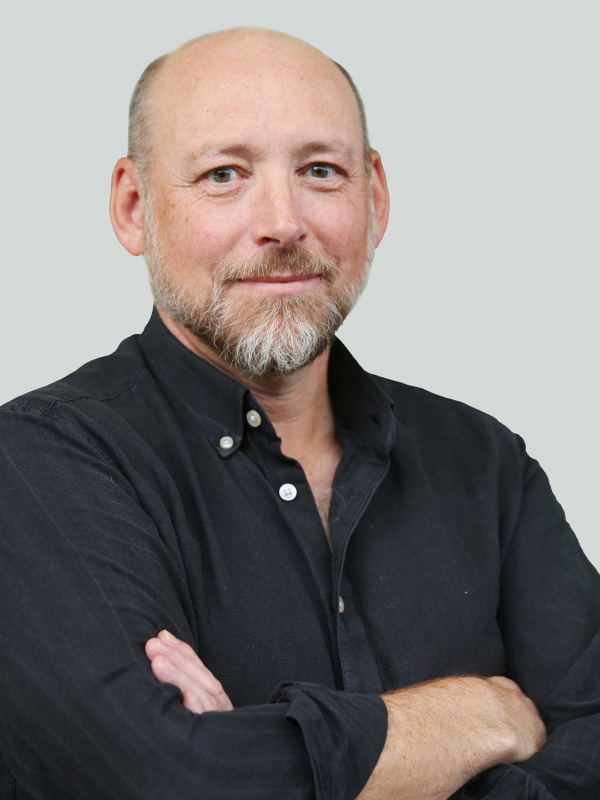
Hi, I’m Paul Ursell,
I’ve dedicated my career to making cataract surgery safer and easier for patients.
With over 25 years of experience and more than 10,000 cataract surgeries performed, I’m passionate about improving vision and quality of life.
I developed the ‘no needle, no patch’ technique now widely used across the NHS.
As Immediate Past President of the UK & Ireland Society of Cataract & Refractive Surgeons (UKISCRS), I’m here to bring you the highest standard of care.
Paul Ursell
MBBS MD FRCOphth




